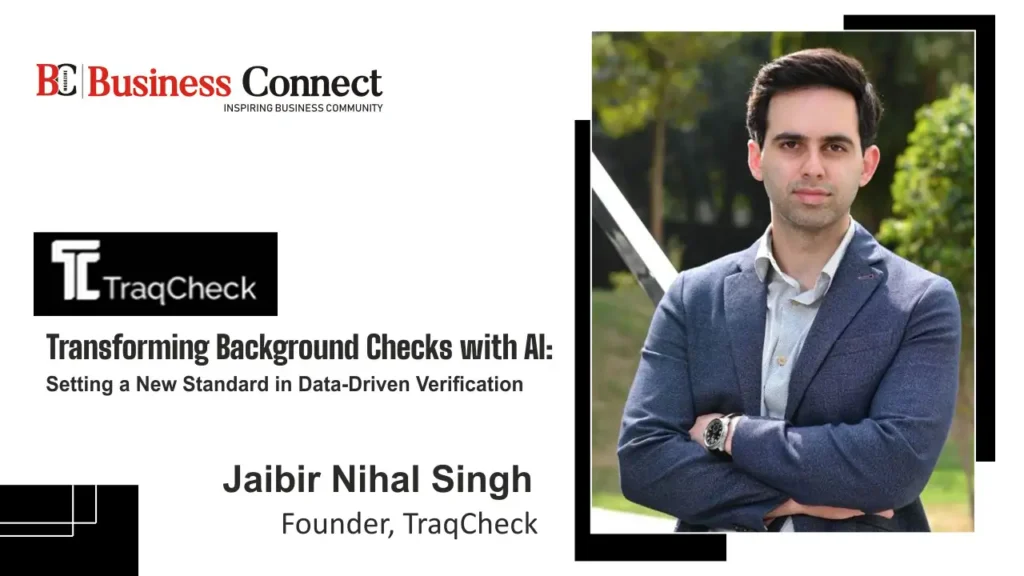By Jaibir Nehal Singh, Founder, TraqCheck
Employees are a company’s most important asset, yet they may also play a significant role in occupational fraud. According to research by the Association of Certified Fraud Examiners (ACFE), occupational fraud typically causes businesses to lose 5% of their yearly revenue. This is a good example of why businesses need to hire the proper people as they grow in order to maintain their financial success.
Inappropriate recruiting procedures lead to a number of problems that cost them productivity and effectiveness of work, ranging from theft to violence on the workplace. Additionally, this leads to a significant drop in revenue generating. Protecting the current assets from the start is crucial since the majority of financial crimes start inside. Conducting background checks is one of the best ways to assist organizations in achieving this goal.
In the past, background checks were only carried out by human recruiters, which presented a number of difficulties, including delays in the recruiting process, unconscious prejudices, and discrepancies. Furthermore, many candidate screening technologies excluded competent applicants whose resumes didn’t fit the job description since they mostly relied on keyword matching criteria. Artificial intelligence (AI) has been included into the human resources sector as a result of these difficulties.
Here’s a look at some of the ways in which AI is streamlining the background check process:
Sourcing Candidates
Employers may increase recruitment productivity by using AI technology to locate qualified candidates across many job boards and industries. HR directors may even find this useful in reducing the amount of time they spend looking for candidates on job boards. Employers may gain a better understanding of candidates’ strengths and limits by using AI to analyze each candidate’s personality, skills, and cultural fit. The hiring procedure thus becomes much more efficient and effective with less work.
Utilising Automated Candidate Selection (ATS)
To choose the best candidate for a position, an application tracking system (ATS) employs artificial intelligence (AI) tools including machine learning and natural language processing (NLP). This approach evaluates each applicant’s skill set and compares it to past recruiting patterns while searching resumes for certain keywords. This lessens the time and effort needed by human recruiters to identify the best candidates.
Identifying Document Forgery
The growth of template farms has made it possible for fraudsters to trick employers by creating fake documents. However, fraudulent papers may be quickly identified during the screening process by using an AI fraud detector. Organizations avoid financial, professional, and reputational risks as a consequence.
Increased Speed and Efficiency
AI systems are capable of processing enormous amounts of data at a speed never seen before. Fast response times for background checks follow, which is crucial in competitive job markets. In a fraction of the time required for manual evaluation, these automated AI-focused systems can assess criminal histories, employment histories, and educational backgrounds.
Enhanced Accuracy
Manual background checks can’t accept human error. Companies can significantly reduce the likelihood of mistakes by using AI and machine learning algorithms to apply consistent testing and criteria to all candidates. More thorough and accurate background check reports are produced as a result of these algorithms’ ability to identify patterns and anomalies that people typically miss.
Cost Effectiveness
The majority of AI-focused background check processes are automated. This lessens the requirement for intensive training while saving organizations money. Better productivity and long-term cost benefits can offset the initial investment in AI technology.
Road to Future
The background verification procedure is set to undergo a major upheaval in the future as technology advances. Potential solutions for customized background checks across different labor sectors will be presented via trends like AI-powered document verification, behavioral analysis, and consistent evaluation.
Due to the incorporation of AI technologies into recruiting procedures, the worldwide background check market is expected to reach USD 4174 million by 2027, according to the MarketsandMarkets analysis. Even if AI has many benefits for the HR sector, it’s important to keep in mind that people are still supported by this technology, not replaced by it. The employment process will continue to prioritize human cognitive abilities like reasoning and thinking.
Add Business Connect magazine to your Google News feed
Must Read:
- Networking Tips for Business Professionals: Building Meaningful Connections
- Importance of Customer Feedback: How to Use It to Improve Your Business
- US 2024 Election Guide: Key Dates, Voting Process & Insights
- AMU Leasing: An Inspiring Finance Leader Empowering Growth
- Exposing the Growing Menace: Fraud in Contemporary India



